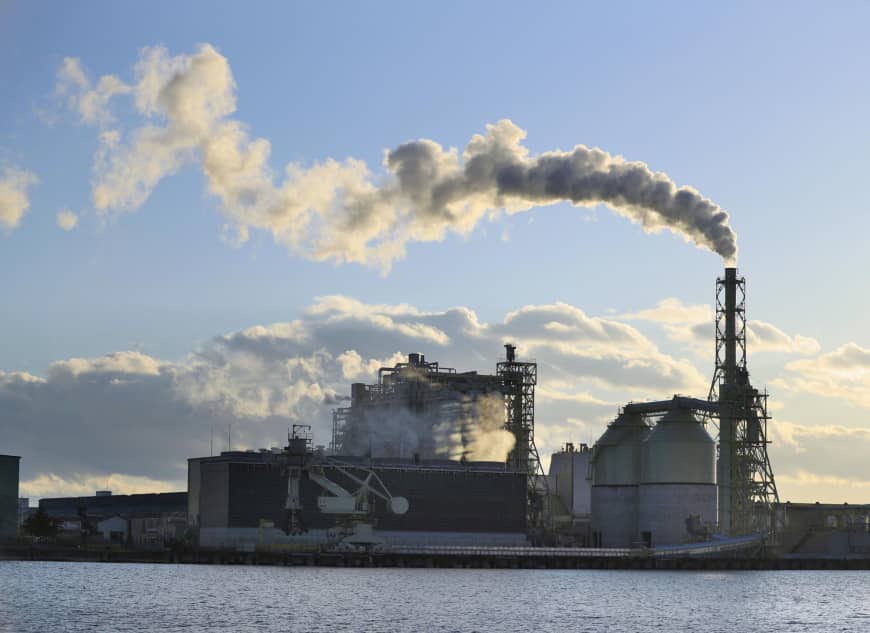Japan will close about 100 of its aging coal-fired and inefficient power plants by fiscal 2030 to reduce carbon emissions and shift toward renewable energy.
Industry minister Hiroshi Kajiyama is expected to announce the plan as early as Friday.
The ministry will set up an expert panel to evaluate ways of persuading electric utilities to tap alternatives to coal. An option is to set quotas for the amount of electricity they may generate using low-efficiency generators.
Under its Strategic Energy Plan, Japan aims to reduce the use of coal from 32 to 26 percent by 2030.
Japan will promote wind, solar and other forms of renewable energy from the current 17 percent of its electricity generation to up 24 percent, and nuclear energy from 6 percent to up to 22 percent.
According to the plan, Japan will continue to use coal due to less geopolitical risk and being more cost-effective than oil.
Kimiko Hirata, the international director of environmental group Kiko Network, noted that there are still loopholes in the plan that allows electric utilities to continue using coal.
There are 140 coal-fired generators in Japan, with 114 older and inefficient. Japan is building 16 more coal-fired generators to back up its existing 26 that are considered to be highly efficient.
Japan relies on coal for about a third of its energy needs and is the only member of the Group of Seven industrialized nations still pursuing new coal-fired power plants.
The country is also promoting its coal technology in developing countries, arguing that improving efficiency is more realistic than quitting coal.



 Japanese Pharmaceutical Stocks Slide as TrumpRx.gov Launch Sparks Market Concerns
Japanese Pharmaceutical Stocks Slide as TrumpRx.gov Launch Sparks Market Concerns  U.S. Stock Futures Rise as Markets Brace for Jobs and Inflation Data
U.S. Stock Futures Rise as Markets Brace for Jobs and Inflation Data  Trump Lifts 25% Tariff on Indian Goods in Strategic U.S.–India Trade and Energy Deal
Trump Lifts 25% Tariff on Indian Goods in Strategic U.S.–India Trade and Energy Deal  Gold and Silver Prices Rebound After Volatile Week Triggered by Fed Nomination
Gold and Silver Prices Rebound After Volatile Week Triggered by Fed Nomination  South Africa Eyes ECB Repo Lines as Inflation Eases and Rate Cuts Loom
South Africa Eyes ECB Repo Lines as Inflation Eases and Rate Cuts Loom  Nikkei 225 Hits Record High Above 56,000 After Japan Election Boosts Market Confidence
Nikkei 225 Hits Record High Above 56,000 After Japan Election Boosts Market Confidence  Yen Slides as Japan Election Boosts Fiscal Stimulus Expectations
Yen Slides as Japan Election Boosts Fiscal Stimulus Expectations  Dollar Near Two-Week High as Stock Rout, AI Concerns and Global Events Drive Market Volatility
Dollar Near Two-Week High as Stock Rout, AI Concerns and Global Events Drive Market Volatility  Dow Hits 50,000 as U.S. Stocks Stage Strong Rebound Amid AI Volatility
Dow Hits 50,000 as U.S. Stocks Stage Strong Rebound Amid AI Volatility  Trump’s Inflation Claims Clash With Voters’ Cost-of-Living Reality
Trump’s Inflation Claims Clash With Voters’ Cost-of-Living Reality  RBI Holds Repo Rate at 5.25% as India’s Growth Outlook Strengthens After U.S. Trade Deal
RBI Holds Repo Rate at 5.25% as India’s Growth Outlook Strengthens After U.S. Trade Deal  Bank of Japan Signals Readiness for Near-Term Rate Hike as Inflation Nears Target
Bank of Japan Signals Readiness for Near-Term Rate Hike as Inflation Nears Target  U.S. Stock Futures Slide as Tech Rout Deepens on Amazon Capex Shock
U.S. Stock Futures Slide as Tech Rout Deepens on Amazon Capex Shock  Asian Markets Surge as Japan Election, Fed Rate Cut Bets, and Tech Rally Lift Global Sentiment
Asian Markets Surge as Japan Election, Fed Rate Cut Bets, and Tech Rally Lift Global Sentiment  Indian Refiners Scale Back Russian Oil Imports as U.S.-India Trade Deal Advances
Indian Refiners Scale Back Russian Oil Imports as U.S.-India Trade Deal Advances  Australian Household Spending Dips in December as RBA Tightens Policy
Australian Household Spending Dips in December as RBA Tightens Policy 































